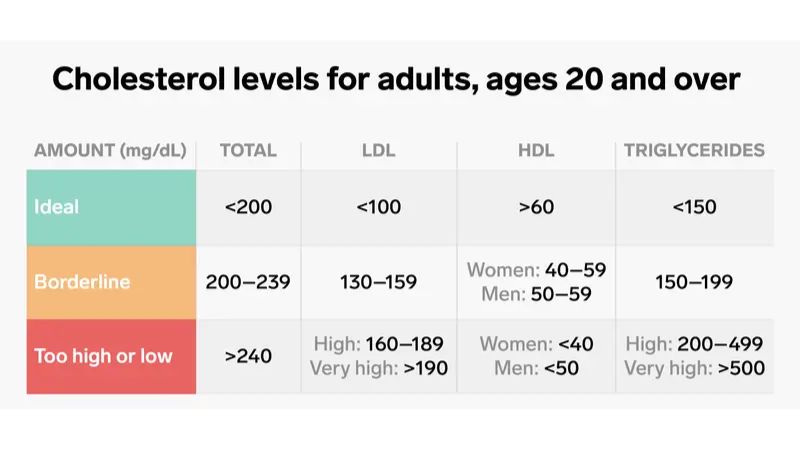Introduction
Maintaining cholesterol healthy levels is crucial for overall well-being, yet it’s a topic that often confuses people. What is cholesterol? Why is it important to keep it in check? In this comprehensive guide, we’ll unravel these questions and provide actionable insights to help you manage your cholesterol effectively.
Understanding Cholesterol
Types of Cholesterol
HDL (High-Density Lipoprotein)
HDL is often referred to as “good” cholesterol. It helps remove other forms of cholesterol from your bloodstream, reducing the risk of heart disease. Think of HDL as a vacuum cleaner, tidying up the cholesterol mess.
LDL (Low-Density Lipoprotein)
LDL is known as “bad” cholesterol. High levels of LDL can lead to plaque buildup in your arteries, which can increase the risk of heart attacks and strokes. Imagine LDL as the bad guy, causing trouble in your cardiovascular system.
VLDL (Very Low-Density Lipoprotein)
VLDL is another type of bad cholesterol, primarily carrying triglycerides. High levels can contribute to the hardening and narrowing of arteries, similar to LDL.
How Cholesterol Works in the Body
Cholesterol is a waxy substance found in your blood, essential for building cells and producing certain hormones. However, too much cholesterol can be detrimental, leading to various health issues.
Cholesterol Healthy Levels
What are Cholesterol Healthy Levels?
Maintaining cholesterol within healthy ranges is vital. Here’s a quick breakdown:
- Total cholesterol: Less than 200 mg/dL
- LDL cholesterol: Less than 100 mg/dL
- HDL cholesterol: 40 mg/dL or higher for men, 50 mg/dL or higher for women
- Triglycerides: Less than 150 mg/dL
Recommended Cholesterol Levels by Age and Gender
Cholesterol levels can vary based on age and gender. Generally, women tend to have higher HDL levels, while men may have higher LDL levels. Regular check-ups are essential to keep track of your cholesterol numbers.

Factors Affecting Cholesterol Levels
Diet and Nutrition
What you eat directly impacts your cholesterol levels. Consuming foods high in saturated fats, trans fats, and cholesterol can elevate your LDL levels.
Physical Activity
Regular exercise can help raise HDL cholesterol while lowering LDL cholesterol and triglycerides. Aim for at least 150 minutes of moderate aerobic activity or 75 minutes of vigorous activity each week.
Genetics
Your genes play a significant role in determining your cholesterol levels. Familial hypercholesterolemia, for instance, is a genetic condition that causes high cholesterol levels.
Age and Gender
Cholesterol levels naturally rise as you age. Women may see an increase in LDL levels post-menopause.
Smoking and Alcohol Consumption
Smoking lowers HDL cholesterol, while excessive alcohol consumption can raise total cholesterol and triglycerides. Moderation is key.
Diet and Cholesterol
Foods that Lower Cholesterol
Oats and Whole Grains
Starting your day with a bowl of oatmeal can significantly lower your LDL cholesterol.
Nuts and Seeds
Almonds, walnuts, and flaxseeds are excellent for reducing bad cholesterol levels.
Fatty Fish
Fish like salmon and mackerel are rich in omega-3 fatty acids, which help lower triglycerides.
Fruits and Vegetables
Fiber-rich fruits and vegetables can help lower cholesterol levels. Think apples, oranges, and leafy greens.
Foods to Avoid
Trans Fats
Found in many processed foods, trans fats can raise your LDL cholesterol and lower HDL cholesterol.
Saturated Fats
High amounts of saturated fats, found in red meat and full-fat dairy products, can increase cholesterol levels.
Sugar and Refined Carbs
Excess sugar and refined carbs can lead to higher triglyceride levels and lower HDL cholesterol.
Lifestyle Changes to Improve Cholesterol
Regular Exercise
Incorporating regular physical activity into your routine can significantly improve your cholesterol profile.
Weight Management
Losing even a small amount of weight can help reduce your LDL cholesterol levels.
Quitting Smoking
Kicking the habit can improve your HDL cholesterol and overall heart health.
Reducing Alcohol Intake
Moderating your alcohol consumption can positively impact your cholesterol levels.
Medical Interventions
Medications for Cholesterol Management
Statins are commonly prescribed to lower LDL cholesterol. Your doctor may recommend other medications based on your health needs.
Natural Supplements
Supplements like omega-3 fatty acids, niacin, and plant sterols can help manage cholesterol levels naturally.
Regular Check-ups and Monitoring
Regular blood tests are essential to monitor your cholesterol levels and make necessary adjustments to your lifestyle or medications.
Cholesterol and Heart Health
Connection Between Cholesterol and Heart Disease
High cholesterol is a significant risk factor for heart disease. Maintaining healthy cholesterol levels can reduce your risk of heart attacks and strokes.
Preventing Heart Disease with Cholesterol Healthy Levels
By keeping your cholesterol in check through diet, exercise, and medical interventions, you can protect your heart and overall health.
Cholesterol Myths and Facts
Common Misconceptions
One common myth is that all cholesterol is bad. In reality, your body needs some cholesterol to function properly.
Evidence-Based Information
Understanding the facts about cholesterol can help you make informed decisions about your health.
Conclusion
In summary, maintaining cholesterol healthy levels is essential for preventing heart disease and promoting overall well-being. By understanding cholesterol, adopting a healthy lifestyle, and seeking medical advice when necessary, you can keep your cholesterol levels in check and lead a healthier life.



